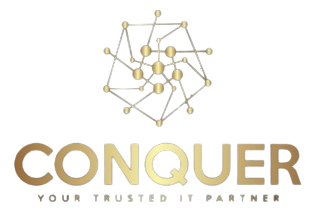
The Ultimate Guide to IT Annual Maintenance Contracts: Ensuring Smooth and Secure Operations
Introduction
In today’s technology-driven world, maintaining a robust IT infrastructure is crucial for the seamless operation of any organization. An IT Annual Maintenance Contract (AMC) provides a proactive approach to managing and maintaining your IT systems, ensuring they function efficiently and securely. This blog post will explore the essentials of IT AMCs, their benefits, and best practices for selecting the right contract for your business.
What is an IT Annual Maintenance Contract (AMC)?
An IT Annual Maintenance Contract (AMC) is a service agreement between a business and an IT service provider. Under this contract, the provider offers regular maintenance and support for the organization’s IT infrastructure, including hardware, software, networks, and other critical components. The contract typically covers a specific period, usually one year, with the option for renewal.
Key Components of an IT AMC
- Preventive Maintenance: Regularly scheduled maintenance activities to prevent potential issues and ensure optimal performance.
- Corrective Maintenance: On-demand repair services to address and resolve unexpected issues or breakdowns.
- System Upgrades: Periodic updates and upgrades to hardware and software to keep systems current and secure.
- 24/7 Support: Round-the-clock technical support to address urgent issues and minimize downtime.
- Monitoring and Reporting: Continuous monitoring of IT systems with regular performance reports and recommendations for improvements.
- Backup and Recovery: Ensuring data is regularly backed up and can be quickly restored in case of a failure or disaster.
- Security Management: Implementation and maintenance of security measures to protect against cyber threats and data breaches.
Benefits of IT Annual Maintenance Contracts
- Reduced Downtime: Proactive maintenance and quick response to issues ensure minimal disruption to business operations.
- Cost Savings: Predictable maintenance costs help manage budgets better and avoid expensive emergency repairs.
- Enhanced Security: Regular updates and security measures protect against cyber threats and ensure data integrity.
- Improved Performance: Well-maintained IT systems operate more efficiently, boosting overall productivity.
- Access to Expertise: Benefit from the knowledge and experience of IT professionals who can provide tailored solutions and support.
- Compliance: Ensure your IT systems comply with industry standards and regulations.
Best Practices for Selecting an IT AMC
- Assess Your Needs: Evaluate your IT infrastructure and determine the level of support and services you require.
- Choose a Reputable Provider: Look for a service provider with a proven track record, relevant experience, and positive client testimonials.
- Understand the Terms: Carefully review the contract terms, including the scope of services, response times, and exclusions.
- Customization: Opt for a provider that offers customized plans tailored to your specific business needs.
- Service Level Agreements (SLAs): Ensure the contract includes clear SLAs outlining the expected response and resolution times.
- Regular Reviews: Schedule regular reviews of the contract and services provided to ensure they continue to meet your needs.
The Role of IT AMCs in Various Industries
Small and Medium Enterprises (SMEs)
- Cost-Effective Solutions: AMCs offer SMEs a cost-effective way to manage IT infrastructure without the need for a large in-house IT team.
- Scalability: Easily scalable to accommodate growth and changing business needs.
Large Enterprises
- Complex Infrastructure Management: Provides comprehensive support for managing large and complex IT environments.
- Continuous Monitoring: Ensures high availability and performance of critical systems and applications.
Healthcare
- Regulatory Compliance: Ensures IT systems comply with healthcare regulations and standards.
- Data Security: Protects sensitive patient data and ensures secure access to medical records.
Education
- Reliable Systems: Maintains reliable IT systems to support educational activities and administrative functions.
- Technology Integration: Facilitates the integration of new technologies into the learning environment.
Conclusion
An IT Annual Maintenance Contract is a strategic investment for any organization looking to maintain a robust and efficient IT infrastructure. By providing regular maintenance, prompt support, and expert guidance, an IT AMC ensures your systems run smoothly, securely, and efficiently, allowing you to focus on your core business activities.
Investing in an IT AMC not only helps prevent costly downtime and repairs but also enhances the overall performance and security of your IT environment.

